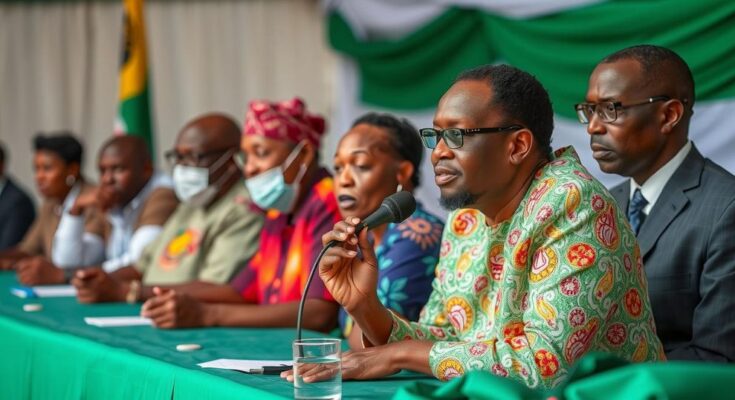Comoros is conducting a parliamentary election marked by boycotts from some opposition parties who accuse President Azali Assoumani of authoritarianism and question the election’s integrity. Approximately 330,000 registered voters face a potential low turnout amid widespread dissatisfaction with the democratic system. This election follows a turbulent history of alleged electoral fraud and political repression under Assoumani’s leadership.
Comoros is currently conducting a parliamentary election that has been the subject of a boycott by several opposition parties. This boycott has been instigated by accusations that President Azali Assoumani and his ruling party are increasingly authoritarian, raising significant concerns about the integrity of the electoral process. The election, which seeks to fill 33 legislative seats, is taking place against a backdrop of skepticism regarding voter turnout and overall public disillusionment with the democratic system.
Approximately 330,000 registered voters from an overall population of 850,000 are eligible to cast their ballots. However, opposition leaders forewarn of a potentially low voter turnout driven by widespread dissatisfaction. In the last parliamentary election of 2020, President Assoumani’s Coalition for the Renewal of the Comoros party secured 20 out of 24 contested seats, a result they have labeled as a “masquerade,” suggesting it was neither fair nor free.
Assoumani, who has navigated a tumultuous political landscape since 1999 and has held power through a series of elections criticized as fraudulent, continues to face significant opposition. Among those boycotting the current election is the Juwa Party led by former President Ahmed Abdallah Sambi, echoing their stance from the previous parliamentary election.
Notably, this election takes place in the face of adverse weather conditions, as Tropical Cyclone Dikeledi approaches the Comoros archipelago. Nonetheless, officials have confirmed that the voting process is advancing as planned.
Comoros, an archipelago situated off the eastern coast of Africa, has experienced a tumultuous political legacy characterized by a series of military coups since its independence from France in 1975. President Azali Assoumani, a former military officer, first came to power in 1999 through a coup and remains a dominant figure in the nation’s politics. His administration has been marred by accusations of political repression and manipulation of elections, particularly following constitutional changes in 2018 that eliminated term limits. The political climate in Comoros is fraught with tensions between the ruling party and opposition groups, which have accused the government of undermining democratic processes.
In conclusion, the parliamentary election in Comoros, amid a boycott by significant opposition factions, reflects the ongoing struggle between the ruling party and dissenting voices within the nation. The claimed authoritarian tendencies of the current administration, alongside criticisms of past elections, underscore the challenges facing Comoros’ democracy. With a low expected voter turnout and severe weather conditions complicating the electoral process, the integrity of this parliamentary election remains in question.
Original Source: abcnews.go.com




